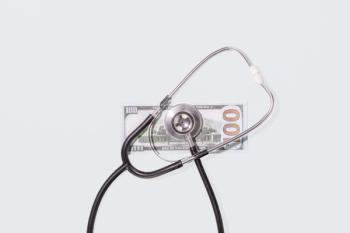
Q&A With Paul Ford, co-founder and president, DS9 Capital
Ford discusses how rising drug costs in impact patients, and how they can either avoid them or find less-expensive options.
Rising prescription drug prices are forcing many patients to make difficult decisions. Making matters worse, physicians may not be aware of the difference in cost between various brands of drugs, causing them to prescribe overly expensive medication. Paul Ford, co-founder and president of DS9 Capital, discusses how these rising costs impact patients, and how they can either avoid them or find less-expensive options.
Pharm Exec: What causes prescription drug prices to be so high?
Ford: Prescription drug prices are driven by several competing market forces. This includes cost to develop and manufacture, marketing, supply chain and fulfillment, availability of quantities in stock, competing manufacturers offering similar products, and the added margin for wholesalers, pharmacies, and pharmacy benefit managers and health plans. The additional fact that there is no widespread legislation to regulate pricing mechanism exacerbates the inflationary pressure upward for prescription drugs.
Pharm Exec: How can patients protect themselves from having to pay these high prices?
Ford: Patients are increasingly seeking similar tools they use in other consumer activities such as coupon finders and Amazon-like price searches to understand their options. They have to not only speak up and ask for lower-costing options, but they have to do so at every turn. This means asking their doctor, their pharmacist, and searching online for manufacturer financial assistance programs for ways to save money and combat high drug prices.
Pharm Exec: Are there benefits to the prescription drug card system?
Ford: Discount prescription drug cards are sophisticated coupons that patients can use at a variety of pharmacies and receive discounts for prescription drugs. These programs are generally free to the patient and are of tremendous value to those that are either uninsured or underinsured. Increasingly, however, patients with health insurance are finding that these discount card programs can save them more money than the health insurance they purchase through the ACA exchanges or the plans they obtain through their employer when using the discount prescription drug card instead of their health insurance.
Pharm Exec: What is the best way to keep drug prices from rising?
Ford: The best way to keep drug prices from rising or fending off prescription drug inflation for the patient and health plans is by seeking alternatives. This may mean taking a generic medication instead of a name-brand drug, or it may mean contacting the drug manufacturer or pharmacy and seeing if they offer the drug cheaper through programs they have. Doctors are also starting to look at alternative uses of medications used to treat one condition on other conditions safely resulting in thousands of dollars of savings per medication annually, sometimes monthly.
Pharm Exec: In general, how much more effective are expensive drugs compared to their inexpensive counterparts?
Ford: For any given condition there can be up to 20 different medication options available. It is not uncommon to see a 1,600% variability in the lowest cost option to the most expensive. This variability can be more or less for specific conditions and drugs. It is worth putting in the effort to save if you can.
Newsletter
Lead with insight with the Pharmaceutical Executive newsletter, featuring strategic analysis, leadership trends, and market intelligence for biopharma decision-makers.



